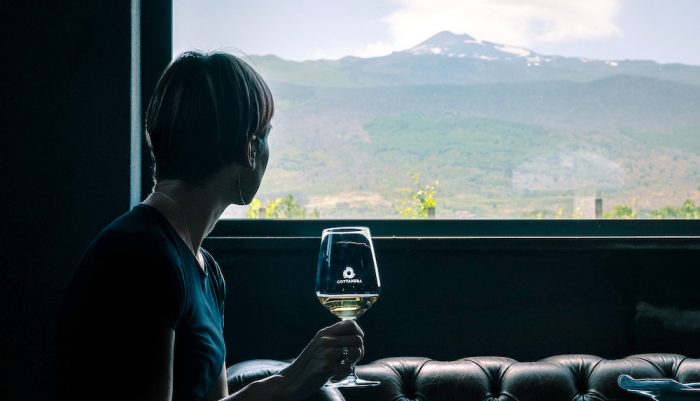The epidemic of loneliness has received increasing levels of attention in recent years since former United States Surgeon General Dr. Vivek H. Murthy brought to our attention that isolation is as dangerous to our health as smoking 15 cigarettes a day, and is more deadly than obesity.
It is counterintuitive that in an age with the most technological methods of connection in human history, nearly half of all American adults report feeling lonely.
Sometimes social media is blamed for our loneliness, as we learn the dangers of looking for connections in our devices. Sometimes the increasing rate of people living alone and the shrinking of the family unit are cited as the reasons loneliness is on the rise.
But what if we can’t see the cause of our deadly isolation? What if we can’t address one of the major contributors to the epidemic of loneliness because it’s hiding in plain sight?
What if our relationships are making us lonely? What if our interactions with our friends and partners are making us sick? What if we are doing it wrong?
True, meaningful, health-improving connection with other humans is widely believed to rely on honesty, vulnerability, and authenticity in our communications with one another. Therein lies the problem. Openly sharing our fears and emotional challenges, even with the people we love, has long been labeled by our society as a sign of weakness. By our fixation on reputations and appearances—living such inauthentic lives—we are making ourselves sick at an alarming rate.
The way we communicate in the digitally connected age is rightly receiving a fair share of the blame for this loneliness epidemic. Do we ever share pictures on Instagram of the things that scare us, or are our photos almost exclusively of smiling vacation faces and our kids holding trophies and certificates? We don’t brag on Facebook about our fears or shortcomings. A picture and the associated caption hardly leave room for authentic concerns or a detailed explanation of emotional trauma. The more we share, the less we share. It is tragic to think that as we can now reach the other side of the world in an instant, finding empathy and compassion has become infinitely more elusive.
But technology is not solely to blame. The traditional American definition of success also forces us to push our true, vulnerable selves deep down into the unspoken recesses of our own lonely minds. When money, power, and victory are the goals, emotions are a sign of weakness and failure. It is hard to crush the competition when we take the time to confide in the people we encounter in our work lives, and probe for shared challenges and concerns. It is ineffective to step on people on the way up the corporate ladder if we then stop to see if they are going to be okay and offer them a hand. As long as we define success in terms of personal prosperity at the expense of others, loneliness is a self-fulfilling prophecy.
I’m not a fan of participation trophies, and I believe in capitalism as the only form of economic system that is sustainable as long as humans with our instincts for self-preservation are the ones playing the game. I’m just saying that if we defined success differently—like by overall impact on the people around us—we would still be motivated to achieve, but we’d be far more likely to work together to reach our shared goals. Money and power are terrible victories, even for those who win.
Think about it for a minute. Do you know of many truly happy and content rich people? They all look scowly and unsatisfied to me.
Lying, cheating, or exploiting the weaknesses of others for our own personal gain is not making us many close friends. We don’t exactly foster an environment where vulnerability is valued when everyone around us seems to be carrying a spear and looking for our soft underbellies. Loneliness has been enhanced by social media, but we’ve been perpetuating it since we understood limited resources and made getting ahead our primary goal.
What about the few and vital close relationships we do have? How can we have spouses, partners, and best friends, and still feel overwhelmed and misunderstood? Maybe we don’t have a lack of relationships. Maybe we are just doing them wrong.
For many of us, we let unhealthy habits get in the way of creating soothing bonds with other human beings. When we find relief from naturally occurring stress and worry in food or drink or sex or technology, we aren’t addressing our problems; we are temporarily escaping from them.
Addiction is often blamed on trauma or human weakness. I argue addiction stems from ignorance and neglect. When we ignore our normal human problems relying on our self-medication of choice, they fester into unnaturally daunting obstacles to contentment. They also destroy our relationships. The very relationships that we neglect, turning instead to our tools to mask our realities, can’t thrive in our little dioramas of denial and deceit.
I am an alcoholic because I used booze to push my challenges and fears away. That’s it. No trauma. No genetic defect. I had close friends and a wife with whom I could have shared my stress and worry. Instead, I hid it from us all, myself included, and created an alternate reality that was unsustainable, because that which we push down must eventually come up. Along the way, I trashed the bonds of trust with my wife, not because I’m evil or flawed, but because protecting a secret has a lot of collateral damage.
The booze isn’t to blame for the addiction that nearly destroyed my marriage. My inability to be vulnerable and honest with the person most interested in knowing me in a true and authentic way is what built a nearly insurmountable wall of resentment between me and my bride. Alcohol wasn’t the architect or the engineer—it was just the tool I used to lay the bricks year after year.
The loneliness epidemic is blamed on a decreased number of close relationships, and we often look to technology as a hindrance to personal connection. Those are real problems, just like looking for happiness in our wallets or from the title printed on our business cards will always prove inadequate or incomplete. But another facet of the loneliness epidemic—maybe the most relevant and insidious component of our human dissatisfaction—comes not from a lack of relationships, but because we don’t know what to do with the people we love.
Overcoming major challenges is often reported as the most significant event in a person’s life. Successfully eliminating obstacles has such an impact—not just because we feel like winners, but often because we have to drop the facade when in survival mode.
I have long said that my sobriety is not nearly as important as my decision to recover out loud. I don’t honestly know the date of my last drink, but I remember precisely when I started talking about my addiction and recovery with anyone who would listen. Putting down the bottle didn’t make me vulnerable, but talking about it certainly did. There was no honesty or authenticity in hiding in my house and thinking of excuses to get out of social events where my friends would be drinking, but telling them I wouldn’t be raising a glass with them because I was an alcoholic gained me a level of respect I never anticipated.
Honesty. Vulnerability. Authenticity. Those three words saved my marriage and were the foundation for the trust on which our love is built. There is nothing authentic about posting a vacation picture. There is nothing vulnerable about trying to earn as much money as possible and exert power over others. And there is no room for honesty when we mask our pain with food or sex or alcohol or drugs. We can’t let the loneliness out unless we are willing to open up and let the love flow in.
For many of us, for me, loneliness is not a question of the number of people in our lives. Loneliness is about finding the strength to be weak. It is about trusting our people enough to show them our soft underbellies. It is about creating connections without devices or substances or greed, and having faith that our vulnerability will be rewarded.
~
If you’d like to learn more about how I turned my life around and traded alcohol for authenticity, please read my free Guide to Early Sobriety.












Read 31 comments and reply